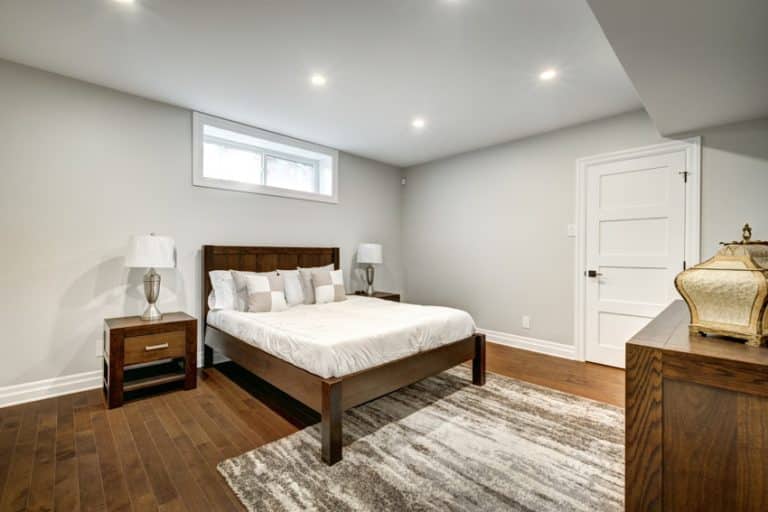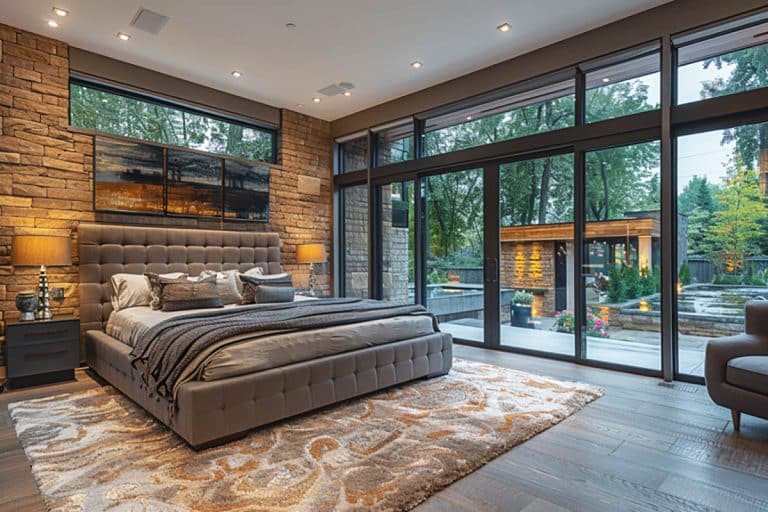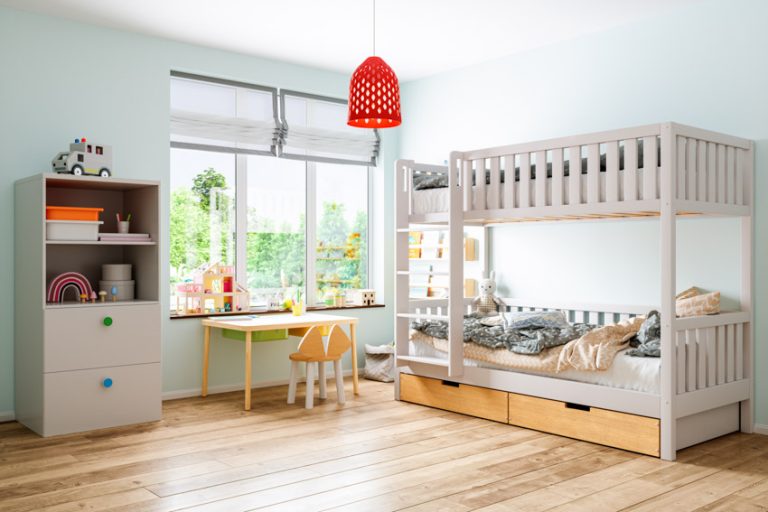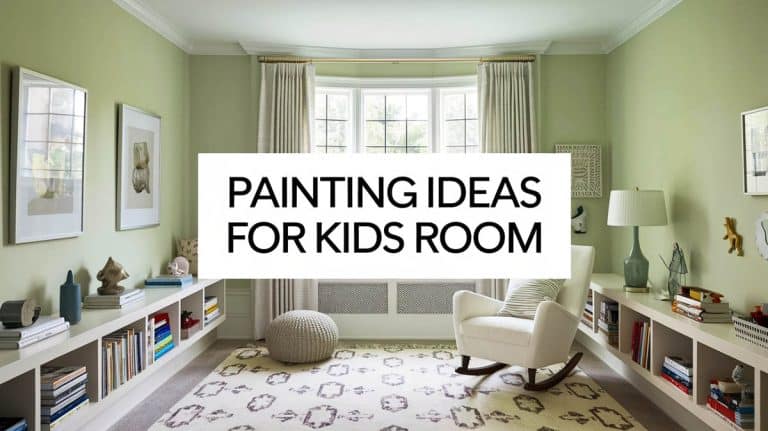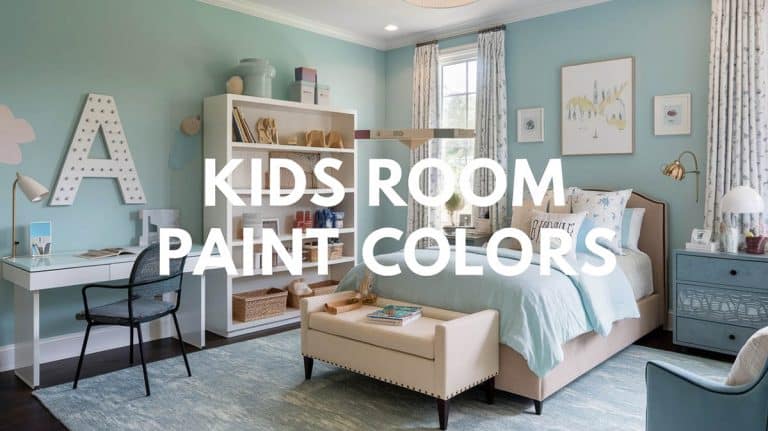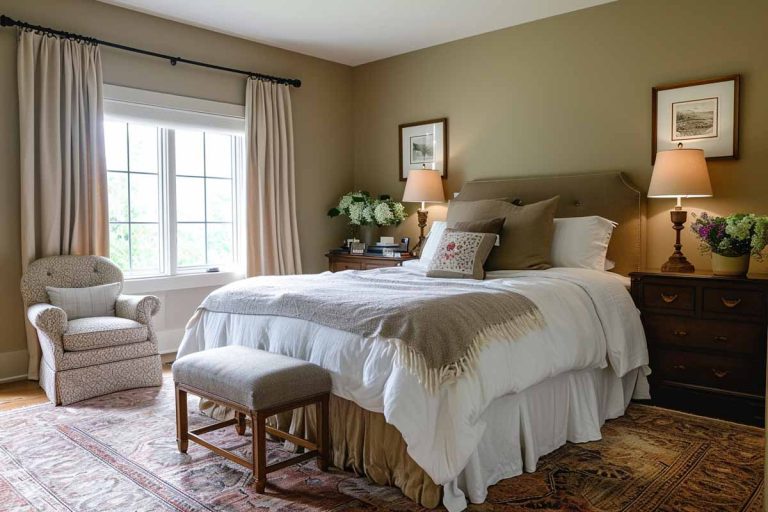Best Flooring For Bedrooms For Comfort And Style
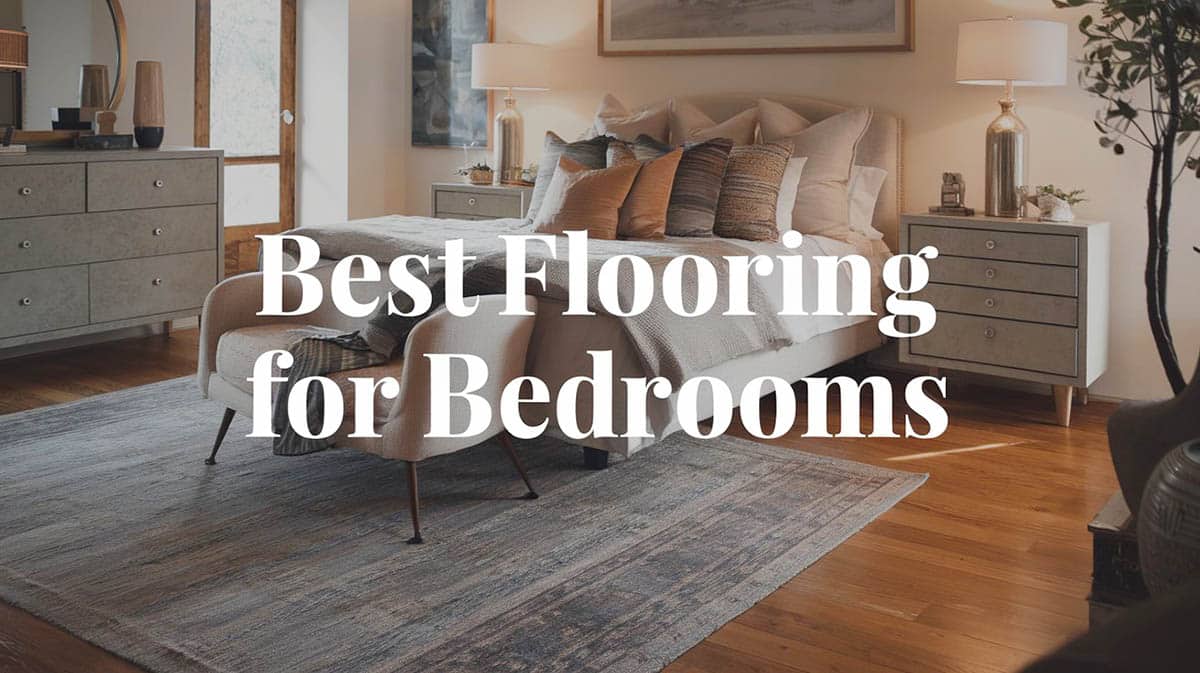
The flooring you choose for your bedroom can have a big impact on the look and feel of the space. While many know right away whether they want carpet or wood flooring for their bedroom design it’s important to know the pros and cons of each. Below we cover the popular types of bedroom flooring as well as the prices you can expect to pay for each material.
Carpeting
Carpeting is one of the most common selections for flooring when it comes to the bedroom and for good reasons. Bedrooms are a relatively low-traffic space that allows for the use of high pile (shag) carpeting which feels extremely soft underfoot. This is great for relaxing or getting in and out of bed without socks on.

Upload a photo and get instant before-and-after room designs.
No design experience needed — join 2.39 million+ happy users.
👉 Try the AI design tool now
Carpeting also helps with insulation, helping keep a bedroom toasty even in the colder months. With the soft material and added padding underneath the carpeting it turns into a good sound barrier.
While it cannot remove all types of sounds, it does deaden most of the echoing that a hardwood floor brings and also keeps the bedroom quieter for some noises in other rooms in the home.
Fortunately enough, carpeting is also relatively inexpensive typically running about $2 to $3 per square foot installed, but can get more expensive based on the quality of carpeting you choose.
Unfortunately, with the low price comes a few downsides. While liquids typically are not brought into the bedroom sometimes you just need a cup of juice before bed or to do your nails in your room.
Once you do that, of course, it is the one time you will spill it all over and these things can stain the carpet which is very difficult to clean out of carpeting. Not only that but carpeting can trap dust and allergens if it is not regularly vacuumed. Read more about types of carpets here.
Hardwood Flooring
Hardwood is another extremely popular choice for bedroom flooring options. Hardwood in general is one of the best flooring materials, and carrying it into the bedroom is no different. Hardwood is a beautiful material that can come in a range of wood colors, allowing for a warm and comforting appearance.
Though it is not as soft and inviting as the carpeting mentioned above, hardwood is softer and warmer than selections such as stone or tile, which are typically not recommended for bedroom use.
Wood is extremely durable and lasts a lifetime if taken care of correctly, and in a bedroom, it shouldn’t be abused or overused. Even when it is time to change out the flooring, they are recyclable, with tons of other used for the material after its first life.
With all these great features, unfortunately, bedroom hardwood flooring is going to cost you much more than other types of flooring.
Hardwood flooring typically runs from about $6 to $25 per square foot installed, depending on the type and installation methods. Lucky enough it pays off in the long run as buyers pay top dollar for homes with hardwood flooring.
There are a few downsides when it comes to hardwood flooring in bedrooms though, for one, it holds none of the sound-absorbing qualities of carpeting, sometimes creating echoes in empty rooms and a louder overall space.
While hardwood is known to be long-lasting, if it does get damaged it could be difficult to repair, and it needs to be resealed occasionally.
Laminate Flooring
Laminate flooring is basically the generic type of hardwood, it can look nearly the same on the outside but is way cheaper and does not have the same qualities. Laminate flooring can be made in pretty much any design or color imaginable, commonly made to look like wood or stone.
Luckily, this flooring is relatively inexpensive usually running anywhere under $10 per square foot installed. This can even be installed by yourself as it is an easy process which could save on the price overall.
Unfortunately, this flooring is extremely hard and holds no insulation value. This means that it is less comfortable underfoot and would require a rug or two if used in a bedroom to increase comfort and sound absorption which the laminate flooring gives none of. In addition to that, the product could give a cheap vibe (as it is the cheaper alternative to hardwood flooring).
Laminate flooring is not very conducive to repairs, it is sort of an all-or-nothing type of deal, and there is no refinishing or taking out one plank.
If you have to replace the entire flooring keep in mind that this is not an eco-friendly product, it is made out of plastic which takes a long time to decompose and there is no market for recycling these products. Visit this page for a comprehensive comparison of laminate vs hardwood flooring.
Cork Flooring
Cork flooring is not a type of flooring that you immediately think of, but for bedrooms, it is an extremely innovative selection. It takes some of the best qualities of carpeting and hardwood flooring and sort of meshes them together.
Cork, unlike hardwood but similar to carpeting, is relatively soft and warm underfoot, this is a great attribute for the comfort that a bedroom seeks. The insulation on this flooring is good due to the construction of the material. Cork has a lot of small air bubbles that act as a sound and thermal barrier helping with sound reduction and keeping heat in the room.
The good qualities cork takes from the hardwood flooring book include its ability to resist allergens and any dust particles making it relatively easy to maintain as long as it is periodically sealed.
Taking all the great things from two products and putting them together, as expected, means it runs at a high cost. The prices are typically comparable to that of hardwood flooring, depending on thickness and quality.
While everything may seem phenomenal when it comes to cork flooring it is also good to keep in mind there are a few cons to cork flooring. Cork flooring does not live quite as long as hardwood flooring does, though it does still have a lifespan of about 25 years, and that is a pretty good lifespan if you ask me.
Other than that this product is not as eco-friendly due to the resins and adhesives that need to be used for the product, the cork itself is natural though so it is better for the environment than say laminate flooring. With cork being a soft material it is susceptible to scratching, adding periodic sealers can help with that. See additional types of flooring here.

